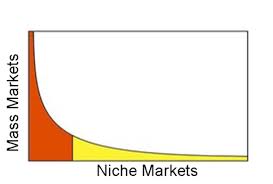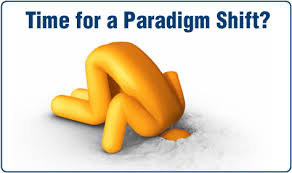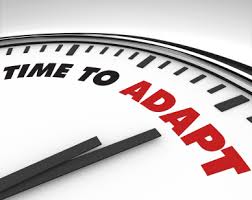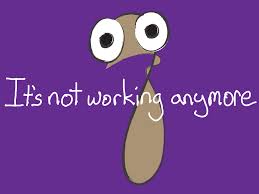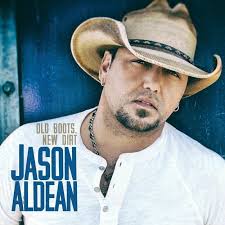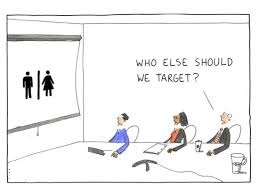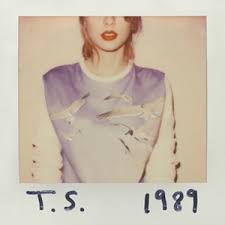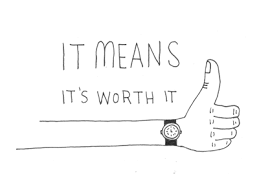

@rg
6 Reasons Why You Still Aren’t A Professional Musician (And What To Do About It)
By ronniegibson, 2016-05-01
From the millions of people who want to become professional musicians, only a handful ever do. One of the main reasons for this is that most musicians waste years pursuing the WRONG things that never bring them closer to becoming successful in this industry. Even though many honestly try and work hard to make it, they only grow more and more frustrated as their efforts don’t bring the results they are looking for.
Here are 6 reasons why you currently are not yet a professional musician and what to do right now to move your music career forward:
1. You’re Building A Career As An AMATEUR Musician (Not A Professional!)
There are several key differences between how successful musicians build their careers , and how amateurs (try to) do it. Professional musicians succeed in the music industry because they expect greatness from themselves in everything they do and from everyone they associate with. Amateur musicians remain amateur because they accept mediocre results in their music careers.
Here are some examples:
Amateur musicians spend most of their time playing in bands with musicians who aren’t serious about becoming successful at the highest level.
Professional musicians only work with people who are 100% dedicated to making it in the music industry. Here is a quick test to tell you if your band is on (or close to) the pro level: Would everyone in your band drop what they’re doing to go on a big tour across the country (that would lose some money in the short term), to secure more profitable opportunities for the band’s future? If they wouldn’t (or couldn’t) do this, then your band has a long way to go to get to the pro level. To learn how to fix this situation for yourself and for everyone in your band, study this article about doing music as a full time career .
Amateur musicians continually associate with band members, friends or peers who are pessimistic and criticize their dreams of becoming successful in music.
Professional musicians fill their lives with people who empower and inspire them to achieve their musical dreams. They don’t waste time around negative people who bring down their ambitions of doing music as a career. I call this concept weeding your garden - something I described in more detail in this article on how to start a music career .
Amateur musicians assume (wrongly) that they can navigate the music business on their own, without training or coaching. Instead, they are content with relying on trial and error or (even worse) simply copying what other musicians are doing. They assume that if they merely mimic what successful musicians do, they will get the same results. This approach is one of the primary reasons why most fail to break into the music industry .
Professional musicians work with a music career mentor rather than mindlessly copying what others are doing, to make sure every action they take works as part of an effective strategy to bring them closer to THEIR musical goals.
2. Your Live Performance Skills Are More Suitable For Your Bedroom Than For An Actual Audience
One of the most obvious signs of an amateur musician is the inability to perform well on stage. Being able to simply stand on stage and play your instrument is not enough if you want to put on a professional show that draws tons of people, sells out your music/merchandise and takes your band to the next level in the industry. Every time you perform on stage, it should inspire everyone in the audience to rave to all their friends about how awesome your band is (so they come see you next time you perform). The more you do this, the faster you/your band will transition from playing small bars to larger music halls and eventually stadiums or major festivals!
3. You Self-Sabotage Your Own Music Career
Musicians like to talk about how they lack of opportunities and how if only they were given a chance to grow their career, they would jump all over it. Fact is, most people PASS on most major opportunities that are put in front of them due to their own fears and insecurities.
Case in point: from the thousands of people who apply for my Music Careers Mentoring Program every year, I screen and choose to accept only a fraction of that number (to ensure that I only work with those who are serious and have the best potential to become successful). Yet from the number of musicians who are accepted, there are always those who are AFRAID to join the program! Yes, you read correctly! Many begin to offer reasons (that I recognize immediately as nothing more than fear-based excuses) about not having the time, needing to think about it, not being ready, or a variety of other stories .
 Music Career Success Mini Course
Music Career Success Mini Course Get 6 free lessons on how to get a lot more music career opportunities.
 The Truth About Making It In Music
The Truth About Making It In Music Discover multiple ways to succeed
at a high level in the music industry.
 Are You Ready For A Music Career?
Are You Ready For A Music Career?This test will show if you are ready to become a professional in music.
The point is that those same musicians who complained non-stop about not having the opportunities for growing their careers, now find themselves turning DOWN the big chance to finally get into the music industry on a big level. I hear from some of these musicians years later, and they invariably tell me the same sob story about how nobody ever gave them a chance to become successful and this is why they failed to become pros in this industry.
Don’t be one of these musicians. Don’t let procrastination and inaction be the reason why you never become a professional musician. Don’t let your irrational fear of failure become the DEATH of your music career dreams... There will never be a better time than NOW to begin recording your first album, start a new band, work on your songwriting skills or get the music career training you really need to make it in the music industry. Any rationalization to the contrary is nothing more than an excuse.
To take big steps to advance your music career, first determine your greatest musical goals , then work together with a mentor who will guide you every step of the way until you have achieved them.
4. Your Life Situation Holds Your Music Career Hostage
It’s simply not possible to build a successful music career if you spend every moment of your free time exhausted because you work all day (at a non-musical job).
One way to break free of your day job and start working full time on your music career is to develop a strategy for smoothly transitioning from one to the other. For example, you could reduce the hours you spend at your day job from 40 per week to 35 and spend the extra 5 hours working on your music career. Once you begin making music related income, you can continue to reduce the amount of time you spend at your day job and phase in your music career even more.
Learn more about how to do this in this article on how to transition from a day job to a career in music .
5. You Gave Up On Achieving Your Musical Dreams, But Don’t Know It Yet
One of the best ways to sabotage your music career is to listen to people who are NOT successful professional musicians, who tell you things like:
- “Being a musician isn’t a real job.”
- “You want to become a rock star? Yeah right!”
- “All musicians are starving artists who play for change on the street corner.”
- “The music industry is too risky, you should get a job doing something more secure.”
- “You should get a degree at university and do music on the side in case it doesn’t work out.”
Truth is, the music business is an extremely secure industry to work in (for those who follow the right steps for making a living in music ). Most of the true professionals in the music industry are NOT starving artists... they earn a comfortable living doing what they love and are simply not famous enough to be well-known. In fact, it is much easier to make a lot of money in the music industry than most people think and have that income be very secure. Despite this, countless musicians listen to the pessimistic advice of others who haven’t even worked in the music industry. As a result, they start believing that their musical dreams are too unrealistic or even impossible .
To become a successful professional musician, you must ONLY listen to those people who have achieved the success you want to achieve. It makes no sense to listen to well-meaning (but misguided) advice of friends and family members who only parrot back myths and conventional wisdom about the music business without any first-hand experience in this industry. Remember, your favorite musicians all began at or below where you are now in your music career before going on to achieve great success. The only thing that prevents you from accomplishing these things is your own mindset!
6. You Don’t Really Know How To Make Money In The Music Industry
Amateur musicians spend a lot of time recording their own music and practicing their instruments, but have no idea how to make a living from these things. It’s very common for musicians to spend months writing and recording their first album, then finally release it online where no one ever hears it (much less actually buys it). As a result, they become frustrated, their music careers completely stall and they never attempt to do anything significant ever again.
You will not make a good living as a professional musician by taking isolated actions like the above. Pro musicians earn good money by thinking (and acting) as entrepreneurs, building strategically connected multiple streams of income and by studying with a proven mentor to learn how to create their own opportunities in the music business.
Now that you understand the reasons why you aren’t yet making a full-time living as a professional musician, learn the strategies you need to break into the music industry by reading this page about music career training .
Build a highly successful music career by working together with a music career success mentor .

Forward this article to your friends
Contact | About Tom Hess | Support | Terms Of Use | Copyright | Privacy Policy
© 2002-2016 Tom Hess Music Corporation
The Melody Of Success - Music Career Resources
In the last article that I wrote (21 Songwriting Tips), we explored many different ways to expand our musicianship as a whole. Songwriting Techniques takes us a step inward, focusing on the art of welding a song that used to exist only in our minds. No need for music theory here. This article merely examines the foundation of songwriting and offers alternate perspectives on how to construct a song. As with the last article, only take the tips that are relevant with you and your style of music. These techniques do not apply to every form of music, because many different styles seem to clash with others. Discard the parts that you don’t agree with.
Foundation of Music
How tricky. I’m going to explain music while staying away from music theory as much as possible! By all means, if you know music theory, it can only help you as long as you don’t abuse it. Still, many great musicians have existed without ever laying one eyeball on a piece of sheet music. The foundation of most songs have these things in common...
1) Rhythm. Rhythm, in this instance, refers to the skeleton that holds the guts of your tune. It is the chord structure that lays the groundwork throughout the song. Without a good or interesting rhythm section, you song will lack some serious umph. A poor choice of rhythm usually equates to a poor foundation to a song.
2) Lead. The lead is the instrument that carries the listener through the song. Quite often the rhythm repeats and with some genres of music, quite monotonously. Without a lead to push the song forward, there will not be movement in the song and people could get bored rather quickly. The lead is usually distinguished as being the highest pitched part of your song. If it is not the highest, then it is most likely the loudest. In many songs, a vocal or a guitar solo usually take the lead.
Imagine removing vocals and solos from most of the music that you hear on the radio. Most of the songs would be much less interesting! The lead is one of the most tricky and important parts of the song. A good rhythm lays the foundation. From the foundation, the lead is usually the instrument to make it soar, or fall apart terribly. The lead only has one restriction. In most cases, it is only limited by the foundation of the rhythm. If the lead can be free while adhering to the bonds of the rhythm, then your song will be all the better.
3) Bass. If the bass is doing it’s job correctly (excluding a bass solo), it should be supporting the rhythm while building interesting (or at least avoiding poor) harmonies from the lead. I would say that the two most prominent tones of a song are the highest and lowest pitch and their relationship to each other.
It’s like a cheeseburger. The rhythm is the bun that holds it together. The lead is the meat that tastes so great! The bass is the cheese that gives it that extra zing. The last two parts, the percussion and the ghost are all the extra condiments like ketchup, mustard, pickles, onions or whatever your individual particular taste is.
4) Percussion. Notice I said that percussion was a condiment. That’s because you can get away without percussion. It’s like ketchup. Most people like ketchup but some don’t much care for it. I, personally, must have ketchup in my burgers, oops! That’s off topic (mmm, making me hungry!) For some musical styles, great percussion is essential. A choir could benefit from percussion but does not necessarily need it. A rap song thrives on a great percussion. No need to explain what percussion is. Drums, bongos or basically anything that has some sort of impact that is timed to give it some sort of groove. It may even be a sample repeated in rhythm.
5) Ghost. Ghost? What the heck?! This is one element that does not have to be in your song, but is highly recommended. Ghost instruments usually shine after a person has listened to your song many times. These are those little tunes and riffs that you never even noticed the first few times you heard it. A good ghost note should add in a new subtle depth to your song that could not be attained through the other four categories. It should personalize your music with your individual flair. A good ghost sequence should make the listener feel like if it weren’t there, your song would feel just a little more empty. When people hear a song they love for the tenth time and notice a sequence that they never noticed before, then you’ve successfully added a ghost sequence.
Now What?
So now what? You have the five foundations of music. What do you do with them? How do you start? That is a tricky question that I can’t answer. Sometimes a great song starts with an awesome chord progression from the rhythm, sometimes its the vocalist who comes up with a great melody line(the lead), sometimes its a funky groove, sometimes even a funky bass. Doubtfully will it spawn from a ghost sequence. They are usually added in the end. Though songs have spawned from many different places, I will cover them in order starting with the...
Intro
For me, I usually write the introduction last. That’s okay, no matter how you do it, I’m just going to give you some different ideas on how to start your song.
*Synchronicity. In many cases, the first four foundations come out at the same time. This gives your song a feel of a strength from the beginning. It goes from 0 - 60 in 0 seconds. There is no loss of momentum (although there is no build of momentum either).
*Lead first. Vocals, or a lead instrument begins the song. It will feel empty because it’s not supported by any of the other four foundations. That’s okay in this case. The feel of this idea is to make your the lead ‘naked’, to expose it like it could never be exposed before. Once you have bared the soul of the lead, usually the other foundations are quick to follow. Many slow songs will have a lead begin the music.
*Rhythm first / Percussion first / Bass first. No need to sub categorize these. They are all about the same idea. Buildup. Start with any of these three foundations and build off of them, usually a lot quicker than if the lead came in first.
*Veered of the road. Some songs veer off the road to lead the song in. These are usually deceptive ideas to make the listener feel that it is one style or type of song when it is entirely something else. Sometimes it is also a series of sound effects (wind, rain, door slamming, cars, commotion, talking, etc.). Veering off the road is tricky, as it can turn a person off if it is too long or annoying. Have a distinct reason for every part, don’t just mumble.
*Light Weight. Lightweight involves using instruments that are usually ‘lighter’ than the core instrumentation of the song. For a light song, the ‘lightness’ might come from the slowed tempo, or less articulation with the playing of the chords. In a hard rock song, it might start with a piano or an acoustic guitar. When the song fully comes to terms, it would then switch over to a distorted guitar playing the same rhythm, or a modified form of the same rhythm. This allows the lead to continue on without having to change the overall feel of the song.
* Heavy Weight. Blast them with a stroke of sheer power. Then when you think they are on the brink of explosion, drop it off into a much lighter form of instrumentation. Heavy weighting the song usually comes in strong, and builds up even stronger. Just when you think it’s about to hit the climax, it will completely drop off, only to be resolved (or visited again) way later in the song.
The Rest of the Song
I’m sure most of you know what a chorus and verse is. There are common song structures, but I’m not going to go over that. You all should know the standard and if your music would like to follow that standard or veer away. What I’m going to introduce are some new ways to enhance your music. I’m not including mixing techniques, just a handful of musical ideas to make your songs more creative.
* Morphing. Morphing a melody is a great way to introduce a new instrument. Basically, two instruments are playing the same thing, but one has no volume and the other has full volume. Slowly turn the volume down on one instrument (decrescendo) while the other gains volume (crescendo). It will make the instrument appear to morph in.
* Switcharoo. Another nice idea is when two instruments are playing two different parts. Switch the parts around to let the other instrument take the lead.
* Dropoff. Stop the music at once. This will create a tension. It should resolve rather quickly or you’ll lose the effect. This can be very powerful if used right.
* Invention. As one instrument finishes the first measure, a new instrument plays the exact same thing on the second measure while the first instrument continues it’s path. Here’s an example... (imagine these are being sung at the same time)
Instrument 1: Twinkle twinkle little star, how I wonder what you are, up above the world...
Instrument 2: Twinkle twinkle little star, how I wonder what...
* Texture layering. Two to five synths all play the same part. Every synth has it’s own distinctive sound. This will make it sound like one huge sweeping synth. You can even layer other instruments (guitar, voice, etc) at the exact same pitch to give it a humanistic uniqueness. If the lead is layering with the texture, then it can later branch off to establish itself.
*Swirling Pans. Can be used with texture layering. Basically as one instrument pans completely to the left, another one is going right. They will appear to swirl around in circles around the listener.
*Veer off the road. Let your music veer off the road briefly to introduce a strange tension. As soon as they begin to feel a little lost, snap back into place.
*Creative ghost uses. Extremely light vocals which say interesting things. Complex instrumentals that are barely heard. Be creative with the way you sequence your ghost tracks.
*Drone- Does not always have to be droney. This could simply be keeping the bass in a stationary position as the music revolves around different chords which include the bass note.
*Escalate- Escalating is when the pitches gradually get higher and higher. This is usually a way to add a climatic part to your song. Don’t overdo it and this idea could either be used rather quickly or very slowly. Make the escalate interesting by having the part do interesting things while the climax builds. Escalating is used a lot with choruses as well, since that usually designates the central theme of the song.
*Going downstairs- Opposite of escalating. The pitches slowly creep downwards. This usually happens to take down a highly charged section of a song.
*X movement. While one instrument escalates, another creeps downward. This will allow the new instrument to take the center stage.
GENERAL TIPS
* Be efficient. Say exactly what you’re trying to say without rambling off topic. A great motivational speaker leads the conversation the entire time. He (or she) speaks with authority and charisma. From that strength, comes the wisdom to use powerful word combinations and compelling dialogue. The motivational speaker is leading the audience through a world of ideas which exist only in their heads. If he begins to ramble, he begins to lose control of where he is leading them. The vivid imagery begins to get confusing, and the message may get lost.
Music is very much the same. By all means, being efficient does not mean making an overly simple song. It just means you should only put in the music that reflects what you’re trying to say. Don’t shove too many ideas out at once, or they will be too thin and scrappy to enjoy. Cut the fat off the steak. Let them enjoy the parts that are relevant.
*Have movement. Movement usually comes from the lead, or a solo. Movement is the reason why the listener will play your song over and over. Let’s face it, if your song is four measures long and your repeat it throughout endlessly without any changes whatsoever it will have little to no movement (which may be okay if you’re writing a jingle or a video game soundtrack). Even trance music will have tones and textures that evolve slowly to give it movement. It would be as if I repeated the same sentence over and over again. It would be as if I repeated the same sentence over and over again. It would be as if I repeated the same sentence over and over again. It would be as if...AAAA! I can’t take it anymore! Movement is what usually makes your songs come alive.
*Endless movement. A few people enjoy listening to endless movement, but for the most part- people enjoy being able to relate to a central structure. What I mean by endless movement is a song that never quite establishes a central mood or theme. It keeps running, and the listener is usually spending the entire time trying to play catch up, never being able to fully immerse themselves into a feeling because it moves too much.
Imagine a song that is written like this (don’t think lyrically. Just picture the mood of this rhyme, and compare it to the mood of a song).
The cell is dark and black,
my teeth are gritting with rage,
a little girl eats her ice cream,
dancing along the street,
because I love you,
oh baby, you’re as sweet as can be,
as pretty as the sea,
so get on the dance floor,
I want to see you shake your booty,
yeah, yeah,
and let the slaying begin.
I hate this place.
You’re cute.
This will definitely send mixed signals to the listener. Some will find it to be awe inspiring (there are always people who love things that are way different), but most people will not be able to relate. The mood jumps too much. The message that you are trying to say will be twisted, because it never situates itself. The mood has not been established.
*Going to the Movies. Music and movies have a lot in common. Both have a catalog of different genres that different types of styles fall into. Both try to emotionally connect with the people who are experiencing it. Both use many of the same concepts to wrap the audience. For instance, some songs start with a “heavy weight”, which means that they start off extremely hard. Slowly, the music begins to ascend to something even harder but just before it reaches that point, it will drop off into the core of the song (which is usually much lighter at first), only to revisit that same tension later on in the song. Many movies start off strong to capture the audience. After the strength of the movie has been shown, it will usually drop off into something completely tame. The tension will be later visited but it will also resolve. So the next time you write a song, think about how it would be as a movie. You will notice many similarities, and you can even use concepts from movies in your music. Be creative, and you’ll see what I mean.
*Say the same thing in different ways. If your song tends to repeat, perhaps you should consider a very slight variation. It could be the singers tone, or one little note that switches it up. Although this doesn’t apply in every situation, it’s always nice to keep repeating melodies interesting.
*The art of fish hooking. For most songs, the art of introducing the hook is the best way to catch the fish. Sometimes the hook is blatantly there, sometimes it is hidden only to be revealed later. The great thing about using a hook in your song is that you have established the central theme in which to build upon. As you build upon that theme, make sure you do it in such a way that it establishes itself as an individual and not a grain of sand in a desert full of overused hooks.
*Read my other article. Lots of information from that article that would fit perfectly for this section.
Well, that’s it for now. I’m sure I could write a 100 page book of the little intricacies of songwriting. These are the simple basics, and I hope that some of them will help you in your future endeavors. Until next time, happy songwriting!
Ken Hill is a guitarist and keyboardist for the New Age band, Torchlight Creek. If you have any comments, suggestions or ideas about this article, please be sure to e-mail him at ken@torchlightcreek.com
By Ken Hill - ken@torchlightcreek.com
Work with what you’ve got. Play to your strengths (literally). If you have a great range, showcase it with big sweeping melodies (Queen, Mariah Carey, and other non-cheesy artists as well!). If your tone is average but you have a great sense of groove, cover more rhythmic songs that highlight that. Choose a song that could have been written for you.
Find your key. Just because the original singer can hit that low G doesn’t mean that’s what is best for you. Find your best range and make sure you are hitting your sweet spots. There are plenty of apps that can transpose your favorite song to your perfect key if you don’t want to do it yourself (or, there are people like me that can help you).
Do it your way. Unless you are playing a wedding and it’s the couple’s special song, don’t feel married to the original version. Try different embellishments. Find your voice and treat the tune like you wrote it.
Experiment with arrangement. Try changing the time signature/feel. ( Here is my rendition of Outkast’s “Hey Ya” as a waltz, for example.) Make a rock song into a ballad, or vice versa. Put jazz chords to a simple pop song. Turn a heavily produced number into a minimalist piece (this is also a good way to go if you are still struggling with self-accompaniment ).
Get permission. If you’re playing an open mic, this isn’t such a big issue. But if you plan on recording a cover and sending it out into the world, check out the info on licensing at the Harry Fox Agency .
Robin Yukiko is a Berklee College of Music grad, singer-songwriter, pianist, and music educator in San Francisco. She hosts the SF Singer-Songwriters’ Workshop at the Musicians Union Local 6. Learn more at www.robinyukiko.com .
"Good" is a subjective term. It can mean a couple of things when used in the context of making demo tapes. "Good" can mean the song (with a slant toward "hit" potential), or it can mean the engineering or production value on the tape. If the ultimate use of your demo is to land a record deal, and not to impress your friends and relatives, then this article is for you.
Imagine this scenario: The Vice-President of A&R at a major record label is sitting in his office listening to tapes (which by the way is how they typically spend less than 10% of their time at work). The first tape he pops in to his cassette deck sounds great. The cymbals are crisp. The lead vocal cuts right through the mix. The guitars are warm, but edgy. The bass is round, fat and punchy. The kick drum gives you a heart attack with each beat. The snare pierces like a hollow point bullet. The mix is perfect. The musicianship is superb. The song is very good, although just a little bit dated. All in all, a very good demo.
The next tape goes in to the deck. The drums sound distant and a little muffled. The guitars are raunchy. The bass is okay. The musicianship is sloppy, but it has some feel and emotion to it. The song however, is unlike anything this man has ever heard. It's unusual, and very infectious. It's raw, but it has something about it that won't let go. The lead vocal is "in your face," and the singer is sweating emotion from every pore.
Which of these demos will the A&R person sign? The latter. Why? Because it's a hit song, not a close call. The first demo had everything going right for it but the song. Record companies are in business to make money. They bet a portion of the farm on every release. You can bet dollars to donuts that they would much rather bet on a hit song than a demo with great engineering or great production. You can also bet that they would rather put their money on an artist who has "star quality" than one who obviously spent a small fortune on their demo.
What's the lesson here? Buy yourself a home studio system that you can afford, and learn to use it well. You'll spend a few (maybe several) thousand dollars in the process, but you would have to spend that on one round of demos anyway. Read everything you can get your hands on to get yourself up to speed with your gear. Become obsessive. Listen to every record that you love. Study how each instrument sounds. Notice their relative placement in the mix. Play with your equalizers until you understand the nature of an eq curve. Experiment with reverb and delays. The more you play around, the more you'll learn. It's not rocket science. It just looks like it from a distance.
The most important thing to remember is not to become a gear junkie. Gear will not get you signed to a record deal. Great songwriting will. A unique artistic vision will. Star quality will. A zillion dollars worth of gear will not.
For your purpose, the use of your home studio requires that you get as familiar with it as you are with your car. Feel comfortable with it. Have a good command of it, but don't plan on driving it in the Indy 500. You only need the gear to make a good clean demo of your music.
Assuming you master your studio, there are some other things you'll need to know. First and foremost; songwriter demos don't need much production. A solid rhythm track with a great lead vocal is often all you'll need. A full production can often hurt a song pitch more than it can help. Leave some room for the listener's imagination to do it's thing. If a song demo is fully produced, it leaves the listener with only one way to hear it -- your way.
The second rule of demo production is to match the gender of the lead vocalist with the gender of the artist you want to pitch to. For song pitches, the lead vocal is crucial. No flat notes. No lackluster performances. Sell the song. Sing with your entire being, but don't go overboard and over sell. And please don't be shy about mixing the lead vocal nice and hot in the mix. The lyrics are very important, not the guitar part!
Artist demos should be a little more produced, but again, don't feel compelled to include the kitchen sink unless the kitchen sink is absolutely necessary to make the song's point.
What else should go in to a demo package? If it's a song pitch, all you need to include is a lyric sheet. Make sure the lyric sheet and the tape display the copyright symbol, the name the song is copyrighted under and the year the copyright was registered.
For an artist demo, it's always a good idea to include a photo and a bio. The reason the record company will want to see a photo is so they can see if you have that elusive "star quality." An 8 x 10 glossy has always been the standard for photo presentation, but it's much cheaper to scan your photo and print it on your bio page.
What does a record company want to see in a bio? Anything that will show them that you are successful in your own back yard. News clippings from successful shows. Proof of radio airplay. Better yet -- proof that you've sold a few thousand tapes or CD's in your hometown or surrounding area is the best ammo you can have to snag a record deal.
But remember, the single most important aspect of any demo package is the song. All the bells and whistles won't do you any good if the song isn't great.
Reprinted with permission from Audio Recording Center: Good sound advice for the independent music maker. Includes helpful articles, a well organized Links section, and other useful resources. © 2001 Audio Recording Center. All rights reserved.

For almost a year, I’ve worked on compositions of mine, but I couldn’t come up with anything new. I began to think that all of this waiting that I’ve been doing “forever” for my music was making me lose my creativity in the area of composing. My mother once told me that “sometimes, you can be too good”. She meant that sometimes you can be so good at what you do, you inadvertently shut yourself out because the jealousy of others is against you. I’ve come to understand that all too well. Combine that with the stress of a day job and what is the first thing to go? Your musical inspiration. So, for months, I couldn’t compose a song even if some guy had a gun pointed to my head! When I get down-in-the-dumps like that, I pick up my acoustic-guitar and play some classical works that I used to play years ago. It doesn’t necessarily inspire me to compose anything sooner, but at least it’s a nice distraction.
Being a musician/composer can really tax the mind and spirit. If it weren’t for my determination and belief in my abilities, I probably would have given music up by now. I want to be successful just like everyone else, but I can’t sacrifice musical substance for money; thus, here I am, just like some of you, hoping that things will turn in my favor one day. My compositions have a personal history, in that something going on in my life fueled them. I can’t compose a song about someone else’s life. I just don’t have that knack for it. I can compose music based on life, but it has to be real life, not make-believe. Therefore, when you are a composer and you are trying to be as original as possible, coming up with that originality can be hell. I have compositions that were written months or years apart. All through that time, I was still playing gigs but my compositions didn’t come as fast as learning to play my instruments better.
Yesterday marked 10 years since my mother passed away on December 8th. I played my acoustic-guitar in her honor because she was the person responsible for my having interest in that instrument. Just when I thought I had lost my ability to compose completely, I woke up today and a song was in my head. It was quite early in the morning and the sun hadn’t risen yet. I stumbled around in the dark to find my guitar. I didn’t reach for a light switch because I didn’t want to lose the music that was playing in my head. For me, turning on a lamp would have distracted the idea. I know; that sounds weird, but I’m “funny that way”. It’s a simple song, in that there’s nothing grandiose about it, but it has a good beginning. I’ve been involved in music long enough to know when I have something and when the idea is headed for the trashcan. I immediately got some manuscript paper and a pencil. I had the song written out in no time. All I have to do now is fine-tune it. As I played the song this morning and watched the skies change color, an indication of the rising of the sun, I found myself getting emotional. I suppose it was the result of having to wait for my creativity to come. When you love music with all your heart the way I do, wanting to compose and play your instrument as well as you can really matter. It’s not about the money. You never know when the ideas for a song will come or how long it will take before things fall into place when you pick up your instrument. You don’t know how situations in your life will impact your music until you experience them. You can’t let yourself get caught up in the illusions. Just look at how the music business is being presented nowadays. They make it look easy on television, but just ask anyone who has gone through hell for his/her music and you’ll get a different picture.
You know how folks talk about “wheels” that begin to turn? In my case, they’re the “wheels of creativity”. My ability for composition has been dormant for months. Today, I can picture giant-sized mechanical wheels in my head that have begun to turn again. I feel as if I’ve received a Christmas present from my mother…
Merry Christmas and Happy New Year to all of you…
BY Kim Michele LaCoste
Consumers really want to buy music.
I keep hearing everyone complain from the bottom and from the top that record sales are down; consumers aren’t buying. 
This is true.
Why?
Why aren’t people buying music like they used to if they really want to buy music?
Music is such an important part of so many of our lives. Is it that we just don’t care these days?
Are we in danger of having a society where music just isn’t present in the fabric of our lives?
No, it’s not that we don’t like music anymore as a society.
Consumers aren’t buying music because we aren’t reaching them.
The methods and dynamics to connecting with consumers has changed, therefore the marketing needs to change to influence their buying 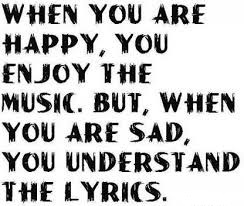 decisions.
decisions.
For the most part it hasn’t. We keep holding on to what used to work and by “we” I mean all of us; indie artists and major labels.
Either consumers aren’t aware of the product or they are aware of the product and don’t think it’s worth the price.
The previous statement was the very definition of ineffective marketing.
Yikes! They don’t think it’s worth it??
Access to the “mass market” is becoming more difficult and complex. The result is the mass market is nowhere near as “massive” as it used to be. This is because the mass market is continually fragmenting into smaller and smaller pieces.
As a big market disintegrates into smaller, more focused markets the definition changes from “mass market” to “niche market”.
As a marketer (of your music) you have to consider the fact that the mass market simply isn’t as easy to reach as it used to be because consumers have so many choices to hang out.
In any given media market, there used to be only 3 TV networks (CBS, NBC, and ABC), 1 or possibly 2 (genre specific) radio stations, 1 or 2 newspapers, and maybe MTV for consumers to receive input about any product, project, or artist.
Think about how easy that was for the record labels to reach us when we were such a captive audience. 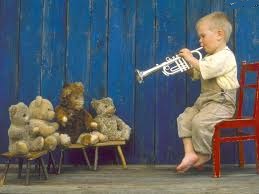
Now we have well over 500 channels on TV in addition to the initial 3 networks.
There are endless possibilities for consumers to devour radio including their 1 or 2 local terrestrial radio stations, HD Radio, Satellite Radio, I Heart Radio (1,000 stations), Pandora, Spotify, Deezer, Slacker, personal playlists, etc.
Every magazine, YouTube, social media, and countless music sites are accessible online at anytime, anywhere in the world from a smartphone.
There is a fundamental, paradigm shift happening right now in the music industry.
Simply put, the methods that were once effective in exposing consumers to new music and influencing their buying decisions has gone through a drastic change.
These formerly effective methods were geared towards communicating to and converting a mass market.
The WHOLE industry will have to change with it and adapt. Until then, it will continue to suffer.
Consider this, as indie artists and human beings for that matter, our understanding of our everyday reality is directly related to the input we receive.
Think about that concept outside the realm of marketing music for a second. 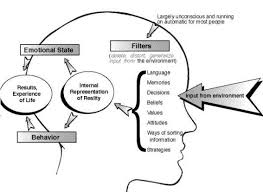
- Poor children aren’t aware that they are poor until they are exposed to how the other half lives.
- Children of famous parents aren’t aware that their parents are famous until they are exposed to other children whose parents aren’t famous.
- Mentally and physically abused people are sometimes not aware (or forget over time) that there are more peaceful ways to live because they get only one kind of input.
- People that are constantly told they are bad, horrible, not important, etc., will ultimately begin to believe that if it is the only stimulus they are exposed to.
We are all products of the input we receive in life and, of course, input from the market place is equally applicable.
The input we receive becomes our reality.
My point is when you think about marketing your music you naturally think about how music (in the form of your favorite artists) has been marketed to you in the past.
It’s the only input you have ever received with regards to music marketing, and it worked.
Not for you.
Not for the major labels either.
Shania Twain’s “ Up! ” was certified 11 million units sold in September 23 rd , 2004. 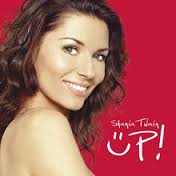
10 years later, Jason Aldean’s “ Old Boots, New Dirt ” was the best-selling country record of 2014 and it barely cracked 1 million in sales by December of last year.
Clearly the record labels haven’t got it figured out yet, man.
So why follow them?
Consumers haven’t stopped wanting or liking music. The way in which they receive their input about music has drastically changed due to technology and a fragmented marketplace.
So, in a way, they’re starving for good music, they just can’t find it in the new marketplace. They can’t find it because we aren’t getting it to them in a language/manner they find acceptable.
The artists and labels that have figured this out are thriving.
Listen, consumers are just as desperate to be turned on to really good music as you are to sell it to them. Crazy, huh?
The new way for receiving this marketing stimulus via social media and content marketing through email and text exchanges is consumed  COMPLETELY differently than the mass media branding methods that were effective before.
COMPLETELY differently than the mass media branding methods that were effective before.
Systems and strategies for addressing mass media don’t work for private, one on one interactions which is how social media, text messaging, and emails are consumed.
Once the fundamental changes to language and the approach have been internalized, understood, and executed masterfully music sales will rise.
Huh?
Taylor Swift provides us with proof of concept on this statement.
While Jason Aldean is an undeniable superstar at the top of his game with TONS of country radio support for his new record, he barely broke 1 million copies.
Taylor Swift released “ 1989 ” in 2014 and it was certified 4 million in sales January 22 of this year and she did it WITHOUT any help from country radio .
She knows how to communicate with her audience effectively in the new marketplace and she has the sales to prove it.
Not only is Taylor’s audience aware that her new record was released, they all felt it was worth it.
Right now I want you to quit lamenting the fact that you aren’t as popular as Taylor Swift and concentrate on the concept here. COUNTRY RADIO ABANDONED this artist and still, she QUADRUPLED the sales of the #1 selling record that country radio unwaveringly supported!
How did that happen?!?!?! Your future as an artist lies in the answer to this question, people. 
You hear Jason Aldean’s singles every day, multiple times a day on the radio, every single he’s released is in heavy rotation.
You never hear Taylor Swift anymore on country radio (except for very recently but only on the limited number of NASH ICON stations which is a joint venture between Cumulus radio stations and Scott Borchetta’s NASH ICON label who is Taylor’s record label head…so that was just a matter of time).
In plain English, record sales are down because labels are not marketing properly. Period.
Your marketing sucks too.
That is if you even think about marketing.
People want music, people need music, and people continue to consume music.
Just not your music.
It’s about the marketing.
Artists need innovative marketing strategies.
Want some staggering proof that it’s all about marketing?
I’ll give you 2 examples.
This is the absolute dumbest most insanely unnecessary product ever produced.
I believe the infomercials for this product still run today.
That is because of only one reason, it sells .
It sells for only one reason, marketing.
Nobody NEEDS the Pasta Pro but the buyers all feel it is worth it because it’s marketed correctly.
Here is another example that is simply mind blowing. 
Bottled water.
Everyday people purchase a 1 liter bottle of water for $1.99.
On average. There are 3.7 liters in a gallon.
That equates roughly to $7.40/gallon for a product we can get for free.
We happily pay more for water, something we can obtain at no cost, than we do for gasoline.
This is because of marketing.
We feel like it’s worth it.
Bottom line to all artists and major labels, if you aren’t selling your music, it’s because people aren’t aware of it and the ones that are don’t feel it’s worth it.
What has to happen for consumers to think your music is worth it?
If we can sell free water for more than twice the price of a gallon of gas, we damn sure can sell music.
MusicClout.com
Artists today need their tracks to compete with what they are hearing on the radio; there is just no excuse for a crappy sounding track. In fact, if you’re track sounds like shit, then it’s our first red flag as to just how lazy, un-resourceful, clueless, and out of touch you are with the music business these days; kinda like showing up to a gun fight with a butter knife. Today’s music is consumed so fast and there is so much of it available that YOU HAVE TO BE FREAKING AMAZING in every way to stick out. Why on earth would you cut any corners on your artistry?? I mean, aren’t you the one always complaining about how crappy music is on the radio and how YOUR band could do so much better? If you’re not part of the solution, you’re part of the problem. Here are 5 really good concepts to internalize before you spend any money recording anywhere that will hopefully help you rise above the fray!
1. Good Demos Are For Songwriters - Demoing your songs as an artist used to be an essential piece of the puzzle to getting a record deal; nowadays, your demos are more a private process of crafting your songs and arrangements to prepare for a master recording session. Unless you are a songwriter trying to get an artist to cut your song, you are WASTING YOUR MONEY with demos no matter how much cheaper the process is compared to cutting master tracks! Forget publicly pushing/presenting demos! Record Labels stopped developing talent a decade ago; so they don’t care about your demo no matter how good your songs are! They care about your momentum, how many tickets, CD’s, Merch, and downloads u sell. If you only have $2,500 and you find someone to demo your 8 songs for that price, you wasted $2,500 because that budget will not have been spent on any activity that will create momentum for you. Relax and save more money or cut fewer songs.
2. Don’t Be Naïve In Your Strategy – It’s FAR better to spend your limited budget on 3 or 4 GREAT tracks than 10 mediocre cuts. For the love of GOD if you seriously are trying to make a living in the music industry, do your music right or don’t do it at all! It’s so easy to freak out on what it costs to really make a great record these days, I get it! The cold hard reality is that you are going to have to spend some money to get this dream of yours going. The more you cut corners, the more you make it an expensive hobby; so don’t be frustrated because you are the one getting in your own way. I think of one of our artists named Tanya Marie Harris from Canada. I remember our first phone conversation, and she said “Johnny, for what you and Kelly are charging me for 2 songs, I can cut a whole record up here…” and my mind went to the pre-programmed response of thinking that we weren’t going to be able to help her, but before I could open my mouth she finished her sentence, “…of mediocrity.” She approached her project with us as if it was the end of the world and it HAD to be done right. We ROCKED those 2 songs of hers and she is now blowing up major radio in Canada because she has 2 KILLER tracks. I wouldn’t be surprised if she ends up with an investor very soon, because she has created real momentum! Bottom line, her approach has opened WAY more doors for her as an artist.
3. It All Starts With the SONG – This is probably 80% of your problem, your songs suck; or some of them are good and the rest are weak. If you spend $25,000 recording a lame, crappy song with Mutt Freakin Lange, it’s going to be the most expensive, slickest sounding crappy song on the planet (he would never cut it, but you get my point). Get some co-writes with some seriously talented writers! If you are now saying, “but I don’t have any of those where I live” then MOVE! Like Sam Kinison said, “GO WERE THE FOOD IS!” It’s quite possible that your songs are very good but maybe just need a little tweaking here is where a good outside ear can make the difference! Which brings us to our next point; Producers.
4. Get a Producer – Make sure that your Producer has a killer engineer or IS a killer engineer; LISTEN to what they have done. ASK who they have worked with. Your best friend who just went to school for a recording degree is NOT going to deliver for you this time; he/she needs their 10,000 hours before they are going to be able to get anybody to the next level artistically. Since you are responsible for your own development now, you have to think like a record label would think. After you sign with a label, if you are ready to record the next step is PRODUCER SHOPPING so why the hell would you skip this step on your own project? Do you really think a Major Label would allow your buddy right out of school to produce your first effort?? HELL NO!!! I recommend using your buddies with the cool home studios for your creative demo process; use them to craft arrangements and songs, but don’t rely on them to deliver expertise because they have none, or they would be working with professionals already. Kelly went to school and got a recording degree; then he wiped his ass with his diploma and moved to Nashville to learn how to make records. I was an artist right out of high school and learned to make records in a trial by fire kind of method. A good Producer is going to help you pick the songs. A good producer is going to tell you, “NO” to the songs that aren’t ready to be recorded or shouldn’t be recorded at this level. A good Producer is going to have heart to heart discussions about your lane and then service those collaborative decisions musically. A good Producer is going to have relationships with the studio musicians and ensure you don’t get “run over” by them. A good Producer is going to have the psychological skill-set to push you and your band to artistic performance heights you never thought possible. A good Producer is going to be just as excited about your project as you are!
5. Be Realistic About Your Band’s Musicianship – You would be surprised how many members of your favorite rock bands didn’t actually cut all or any of their tracks in the studio; the ones that did were AMAZING musicians. In Country music, most professional live musicians, as Godlike as they are live, do not cut in the studio; it’s just a different animal because live is here & gone already and the studio recording is forever. All too often I see bands come in determined that everyone in the band is going to play on the record. If your drummer sucks, then we are going to have to manufacture the performance in Pro Tools to get the track in time and find a groove. If your drummer sucks then your bass player is NEVER going to consistently lock up with the kick drum and this spells S-H-I-T; which means we are going to manufacture the bass performance as well since the drum track has been altered. You see where this goes? It becomes a hot mess and your record sounds, well, MANUFACTURED. You would be better served to make the best recordings possible and let any weaker musicians grow into the role; sorry to say it, but if their feelings are worth the whole record budget you have a problem.

1. Your Songs Suck – Consumers will instantly click past a crappy song to thousands of online radio stations till they find a good song that really moves them in the first 10-20 seconds. You better have GREAT songs. It’s a CRAFT; it always has been. Treat is as such. You need to seek out a few mentors to teach you what they know about their CRAFT and apply your unique vision and perspective to that knowledge. Easy to do with all the online writing societies.
2. You’re Producing Yourself – Have you ever wondered why a record label would NEVER let you or your friends produce your own record? Have you ever wondered why most of the iconic Superstars STILL use producers? Why aren’t they saving money by producing themselves? Surely a producer at that level is pretty damn expensive! Get it? Just because you can work Pro-Tools or Logic doesn’t mean you can or should make a record. The label would put you with someone who is not only experienced at the entire process of making records, but a way better musician than you. The smart artist always thrives being around true pros that are better than them to soak in the education and grow to a new artistic level; fearless of the journey. Most artists will tell people why they can’t or won’t afford a producer and spend their money on their 25th guitar and new plug-ins for the home studio; avoiding the journey. Do you want to make great records or collect gear?
3. You’re Not Marketing…At ALL – Putting your music on iTunes, Spotify, CD Baby, ReverbNation, etc. is digital distribution NOT marketing. Marketing is the art of influencing buying decisions. Having your CD available for purchase “wherever it’s sold” isn’t influencing buying decisions. Twitter, Vine, Instagram, Facebook, YouTube, Live Shows, Music Blogs, Indie Radio, Internet Radio, and PR are the marketing tools you need to master. These tools create awareness and drive traffic to your squeeze page where you get the consumer’s email address. It’s through their email that you will influence their buying decisions.
4. You’re Operating With An Out-Of-Date Business Model - You are still trying to cut cheap demos to shop to a record label to try to get a deal. You still think radio is the key to marketing your music. You still think that radio will be a powerful marketing tool when you do get your deal. You still think the labels make money selling records. You still think that if you get a deal that’s when you’ve made it. Wake up, that ship sailed a decade ago; you have to develop yourself, today.
5. You’re Not Thinking Like A Record Label – If you got signed today, the label would surround you with people that make a living writing songs, engineering, producing, doing public relations, marketing, promotion, booking bands, image consulting, Photographing, etc. All these people would be highly professional and much more dialed in to the market and process than you and your friends. If you’re thinking like a label, you are looking for a team of people to help you with at least some of these important items.
6. You’re Not Selling Your Music On Your Website – . If you were truly DRIVING traffic anywhere to purchase your music, you would drive them to YOUR site and take all the money. Everyone needs a presence on iTunes, CD Baby, Reverbnation, etc., but why on earth would u pay someone 30% of your record sales to do what you can do with a free plug in on your WordPress site? If it don’t make dollars, it don’t make sense.
7. You’re Not Posting Regular Videos To YouTube – YouTube is your new Radio with an amazing potential for reaching millions, no wait…now BILLIONS of people and you don’t need to spend 1 million dollars to bribe a freaking Program Director for a CHANCE at getting a few spins. The “shelf space” is unlimited (Unlike radio) and they pay royalties and advertising revenue. “I don’t get it because I just want to make music” is a cop out. why aren’t you learning everything you need to learn about this amazing opportunity?
8. You Suck At Project Management – If Steve Jobs approached the first products from Apple the way most of you approach managing your musical projects he would have died homeless. Jobs was a true artist, the first computers he and Wozniak made looked good, worked good, were packaged well, and were made in his garage. Instead of making 500 crappy computers with the limited budget they had, he made 50 AWESOME computers and the market place responded; the opportunities that came from the first run of AWESOME computers provided the momentum they needed to reach the next level. If you want to find someone to cut your songs for $300/song, I PROMISE you will find them. Record your 3 BEST songs for the same price as what you have to spend on 12 and do it RIGHT with a TALENTED TEAM. It’s gonna cost money, so think of it as an education. Then watch the market respond!
9. You’re Waiting For Your “Big Break” – Deep down you wish it was the old music business because, on the outside (from the cheap seats) it seemed easier when the labels took care of everything. Well they did and you would have paid dearly for that “EZ Button”. I got news for you, the Superstar Artists that are still around today, never let the labels take care of everything. They worked smarter and harder than that in a sea of sharks. You have to create your own opportunities, your own momentum. There’s no way around it. Nobody gets “discovered” anymore so get off the couch, put the bong down next to your baggage and get to work!
10. You Still Think Record Labels Develop Talent – Record labels don’t develop talent like Coca-Cola doesn’t repair cars; they don’t care about your music, they care about your current cash flow, and how many fans you have a measurable connection with. They care about what kind of market you created for yourself and if they can make money by adding fuel to the fire you already started. Think YouTube and Google. Google didn’t develop YouTube, they purchased them. So those smart guys at YouTube had to PROVE their idea had value in the market place; so do you.
11. You Don’t Think Of Your Music As Product – Until you do, nobody is going to hear your art.
12. You’re Self Sabotaging – This is the most common and most destructive mistake of them all. Let me save you the suspense, you’re gonna make mistakes. You’re gonna hit speed bumps. You’re gonna be rejected. You’re gonna have to get over it! You have to get out of your own way and just move forward. Stop making excuses. If you keep doing what you’ve always done, you’ll keep getting what you’ve always got. PERIOD. So make a change and watch massive amounts of energy quickly flow your way.
13. You Are Too Sensitive To Take Constructive Criticism – You would be amazed how many of your favorite Superstars were brutally schooled by the label on their first record. They were green just like you! “Go back and write us a single we can promote on the radio or we’re gonna drop you”. If you’re too dumb to know that you don’t know, you’ll never make it. Be professional and LEARN. It’s always better to stay quiet in a room and appear stupid than to open your mouth and remove all doubt.
14. You’re Listening To Haters – When you do start to get momentum, people you don’t know and sadly, many that you do will spit poison into every part of your life. Get used to it. You are doing what they can’t.
15. You Haven’t Defined Your Lane – You are afraid to pick a genre because you write in many. Consumers need ONE lane to connect with you in. Just because you pick one doesn’t mean you are ignoring the others. Get some traction in 1 lane first, that will help expose a project in a different lane to more people. Think John Mayer with his first few pop records and then he did a blues project. That blues project got a TON of exposure because he was now John Mayer the pop star.
16. You’re Live Performance Sucks – Nothing is more disappointing than seeing a decent band with great songs and nobody sings background vocals; except for a crappy band with crappy songs, and everyone singing background vocals.
17. You’re Not Capitalizing On Your Live Performances – Today’s music market is about endless content and email addresses. You should have constant video footage to market on social media. You should have boatloads of email addresses after every show. You should be moving product from the stage at every show. You should be gaining twitter followers at every show…THEN you can get laid. J
18. You’re Putting Too Much Stock Into Your ReverbNation Ranking – A #1 ranking for your small town or big city on ReverbNation + $2.54 will get you a cup of coffee at Starbucks. How are you getting paid for your songs?
19. You Don’t Know What You’re Doing On Twitter – Twitter is a simply amazing surgical marketing tool that allows you to SERIOUSLY target your specific market. When done correctly, your following will constantly grow. 1 year from now you could have well over 10k followers and now you have the means to drive tons of traffic to a squeeze page, or a YouTube video, or to….Get my point? Your fans are out there, go find them.
20. You Think It’s All About Music, Not Marketing – The truth is that it sure is nice when they expertly market a killer record, but if it was only about the music, there wouldn’t be any crappy songs on the radio. Think about that for a second. Without marketing, nobody cares about your music because they haven’t heard it.


